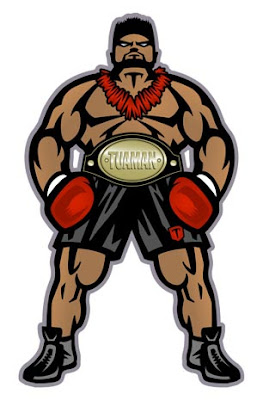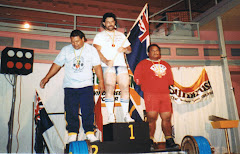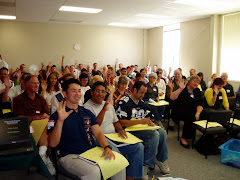- Would you like people to notice the work you've been doing?
- Would you like people to think of you when they need a person with your skills and knowledge?
- Would you like to gain that promotion or advance your career?
If so then read on...
We have a cultural leaning away form any form of self promotion. That it is wrong to "...put the wind in your own sails". Here in New Zealand we are advised to "...let you efforts speak for themselves". By doing so, apparently you will be recognised by your works and gain promotion and recognition over time!
Here's a question for you... "Is your career important to you?"
My guess is you answered "Yes!" to that question. My reply to you then, is this:
"If it is so important to you. Why do you leave it to chance or other people to determine whether your efforts are recognised or not?"

Have you noticed how it is often easier for you to speak well of others and not yourself? Have you also noticed how famous people have image consultants, event managers and promotional experts working for them? And more importantly have you noticed that these famous people will also promote themselves and their accomplishments to the right people? That's right - they are capable of promoting themselves directly to others. In fact, often that is how they 1st started out. By knocking on doors and telling those who needed to hear how good they are. They did this on their way to becoming a world wide sensation. If you don't believe me then listen to some of the foundational speaches of Barak Obama's pursuit of the US Presidency, as an example of successful self promotion.
It's Not My Style
It's likely that you will initially struggle with this concept. That self promotion is not only important for your career's success, it is critical. I'm not talking about bragging to any and every one. I'm not talking about false declarations and nor am I talking about you pumping up your worth by being conceited while putting others down.
No! - What I am talking about is strategically positioned and well timed self promotional statements that promote your abilities and accomplishments in such away, that people become aware of what it is your doing and achieving.
If you're not going to do this and do this well - then who? Will you diligently work away at your job and leave it to others to "hopefully" recognise your efforts - or NOT?
Begin NOW
The need for you to be able to say positive statements about yourself and your abilities is integral in contributing to your success. (Think back to your last job interview). Self promotion is not about you braging, being a blow arse or a show-off! It's about you knowing who needs to know about you. It's about finding the appropriate way that you will let them know that you exist and are making a difference.
This will require you to learn how to do this and do this well.
Begin by making a list of who you are. Include in your list the personality qualities that you have i.e. motivation, diligence, collaboration, stick-ability etc... and format a short 15 second presentation that you can say confidently to others. In addition to this write one down about your success either at work or at home and in your personal life. Make this presentation as breif as a few seconds and as long as 20 seconds. Practice it and get good at being able to speak well of yourself. This will not only be good for opportunities that lend themselves to self-promotion but also for you to gain increased confidence in being able to speak well of yourself.
Once you've done that you'll need to be aware of opportunites that arise where you can speak well of yourself. It could be as brief as standing with a senior managersof yours in an elevator and letting them know that you are making excellent gains on a project they initiated (even if you haven't met them before) or it could be at a business dinner where you have an opportunity to explain the progress you are making with your team, budget, planning, intervention etc... Less is always better than too much. And to not do this is worst of all.
For now - this will be enough for you to make a start on your self promotion campaign. Practice it often and then look for opportunities to speak positively of yourself to those people that need to know.






































































